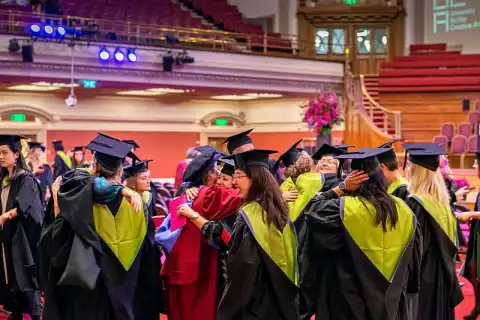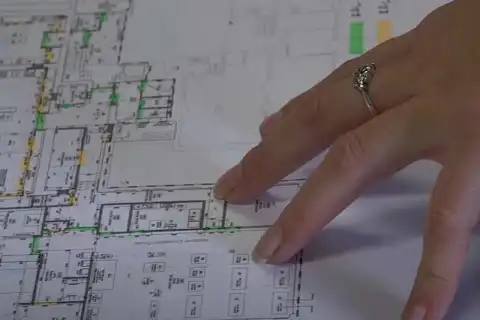Master of Arts - Interior Design
- 1 year
- Duration
- 18,000 GBP
- Price
- Rolling admission
- Start
- Rolling admission
- Deadline
- Master
- Degree
- Campus
- Format
- Canterbury / United Kingdom
- Location
Program description
Do you want to increase your understanding of interior design? to get expertise in tackling and resolving difficult design problems? Then the MA Interior Design programme at UCA Canterbury will provide you the tools you need to succeed.
This course will help you develop a unique approach to spatial design in a challenging, imaginative, and supportive atmosphere. You will be able to show off your planned outcomes, display your competence in your chosen topic of interest, and create work that is a singular reflection of oneself through research-led practise and experimental design.
This degree may serve as a springboard for more advanced interior design employment. You could opt to concentrate on interaction design, virtual reality, immersive events, retail, or specialty fabrication in your projects. You can engage with both modern technology and traditional craft, as well as digital and "real" space, while working with intriguing heritage and sustainability problems.
In a designated studio area, you will learn through one-on-one instruction, seminars, and independent study while conversing with academics who provide knowledgeable research intelligence. Regular reviews with visiting reviewers from many pertinent industry areas as well as study abroad trips are part of the course. Your research, conceptual, self-management, technical, and communication skills will grow throughout this difficult trip, and you'll graduate prepared to enter the world market.
You can choose the Integrated International Pre-Masters, a year-long preparatory programme of study to get you ready for your master's in the UK, improving your speaking and writing skills in English along with your specialty skills, research knowledge, and self-confidence.
Program structure
Term one
The University, its technical workshops, and other resources will be introduced to you. In the first term, you'll take part in a variety of lectures and seminars and begin to investigate your creative practise.
- Context and Method
You'll be required to discuss fundamental ideas and procedures in both modern and traditional architecture, fine art, and design. The main thematic disputes surrounding the landscape will also be covered, including historical movements, notions of cultural production, spatial perception and cognition, material tactility, and embodied relationships. These provide you with a crucial intellectual context in which to consider your individual study ambitions.
- Exploring Practice
Spend this unit immersed in creative studio practise, and perhaps even start forming your ideas for the later stages of your MSc. Additionally, you'll learn about the challenges, requirements, and failures that come with executing big spatial concepts, such as the design and manufacture of a landscape.
Term two
You start working on your MSc project during term two, analysing and testing the objectives of your proposal during an extended period of independent study.
- Project Development
The work you do in this unit builds on what you learnt in the first term. You'll be expected to combine theoretical and applied or practical research strands into a much more focused and sophisticated path of inquiry that will last the duration of your MSc project.
Term three
In the third term of the course, you'll apply the knowledge gained through your research to create a final body of work.
- Final Realisation
Your major project's final realisation, which should be an explanation and practical expression of the ideas, concepts, and levels of skilled practise attained, is the culmination of your course. It should bring investigations started in all earlier sections to a conclusion and provide a single body of work showcasing cutting-edge conceptual, technological, and practical competence.
Price
Fee for two semesters (1 year) is 18,000 GBP for international students
We have offer a range of scholarships and fee discounts.
Requirements for applicants
If you do not have qualifications from the United Kingdom, we will accept equivalent qualifications from your native country for admittance into our programs.
In addition to academic credentials, some of our courses require a portfolio of previous work.
For our Master's courses, we usually require that you have successful completion of your Bachelor's degree or equivalent from a recognised university.
English Language requirements for MA/MSc & MBA courses:
- IELTS UKVI or Academic - Listening 5.5, Reading 5.5, Speaking 5.5, Writing 5.5, Total 6.5
- Test of English as Foreign Language (TOEFL) iBT - Listening 17, Reading 18, Speaking 20, Writing 17, Total 90
- Pearson Test of English (Academic) - Listening 59, Reading 59, Speaking 59, Writing 59, Total 59
- Cambridge English Advanced (CAE) or Cambridge English Proficiency - Listening 162, Reading 162, Speaking 162, Writing 162, Total 176
- Trinity College London Integrated Skills in English (ISE) - Listening Pass, Reading Pass, Speaking Pass, Writing Pass, Total ISE III
- LanguageCert International ESOL SELT - Listening 38, Reading 38, Speaking 38, Writing 38, Total B2 Communicator High Pass
Portfolio requirements
We'll need to examine your written or graphic portfolio for these courses in order to review it. Once you've applied, we'll send you an invitation to submit your portfolio via your applicant portal; more details will be given at that time. This can also be arranged for you if you would prefer to evaluate your work with the Academic Team in person while on campus.
About the university

The UCA team firmly believes that creativity enhances the vitality, innovation, and humanity of global communities. That is why the university has been a fervent supporter of creative research and teaching for the past 160 years.
Architecture, crafts, fashion, graphic design, illustration, fine art, photography, film, media, the performing arts, and creative business are among areas of study offered by the university. Employers in the creative sector hold a high regard for this programs because of their excellent teaching standards.
We want to inspire people to use their creativity to drive change, overcome challenges and improve the lives of others.
So we’ve designed our university to be an inclusive, dynamic environment. Our campuses across Surrey and Kent, our Institute for Creative Innovation in Xiamen, China, and our homes within partner organisations such as the Maidstone Television Studios all have one thing in common: they are places to forge inspiring partnerships, make work with purpose and build real solutions to human problems across the globe – whether that’s as part of our vibrant teaching and research community, or as a student on one of our courses.
Read more about University for the Creative Arts (UCA), United Kingdom





